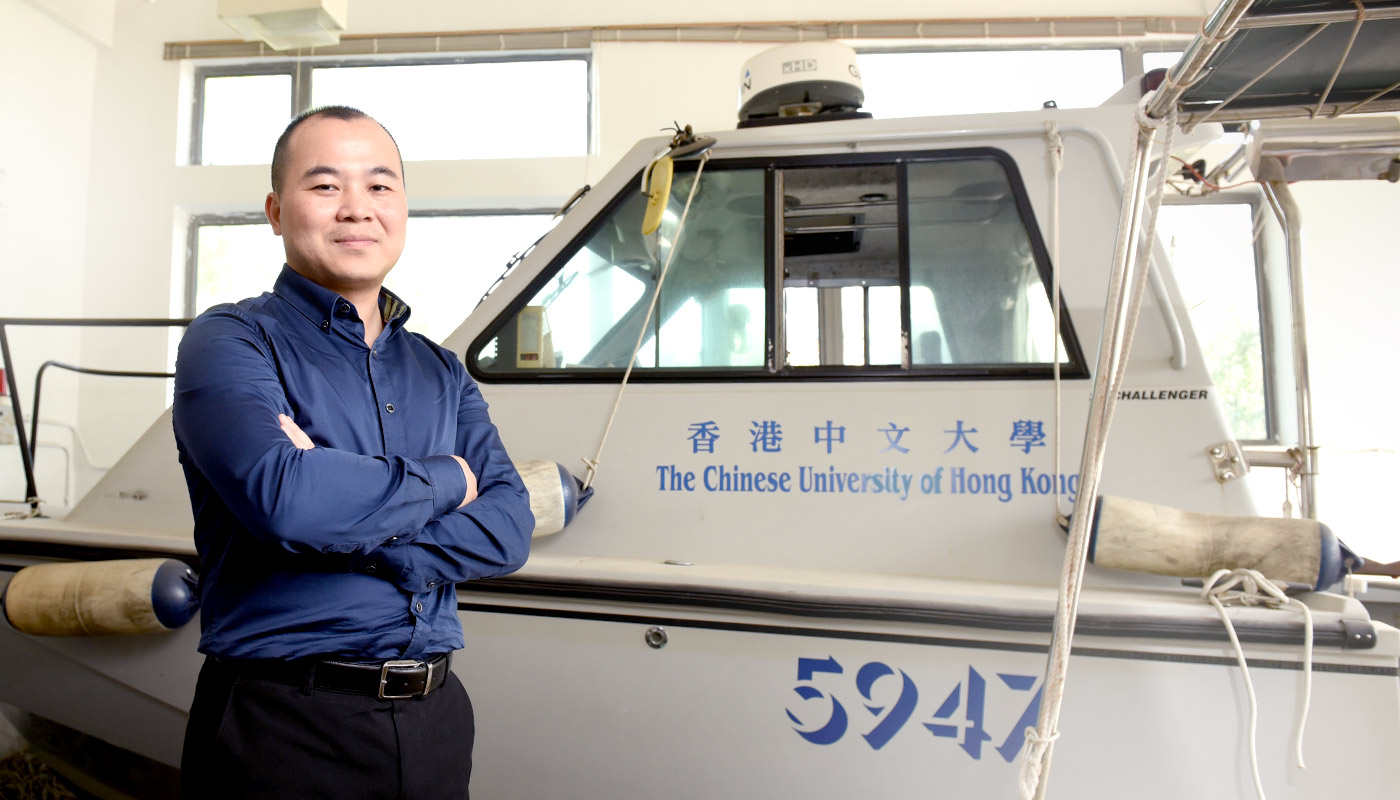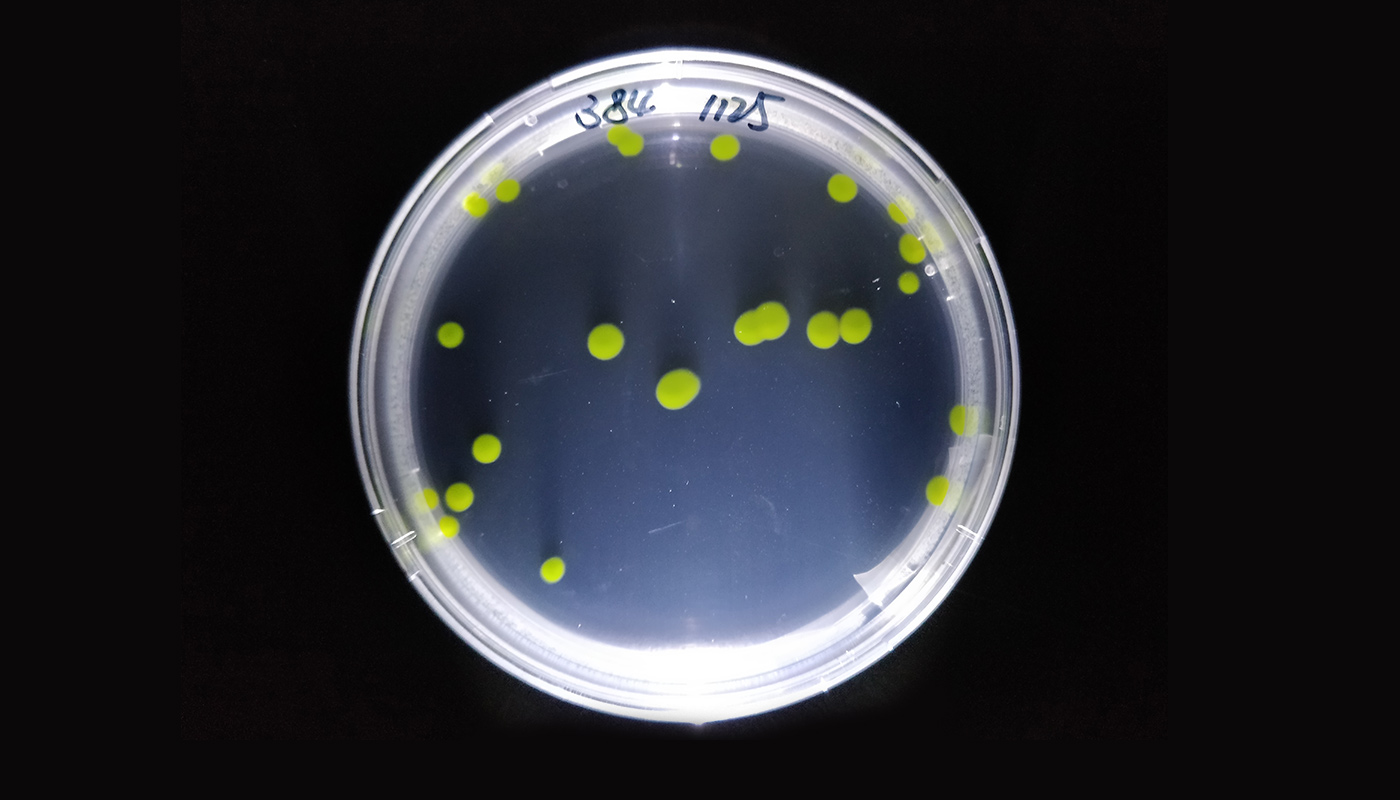From the Smallest to the EarliestLuo Haiwei’s take on evolutionism
June 2018

We take Charles Darwin’s theory of biological evolution for granted. Prof. Luo Haiwei has challenged it.
Professor Luo’s research on the tiny marine bacteria known as Prochlorococcus has helped to improve our knowledge of the earth’s climate over the aeons since its creation. It has also yielded a surprising finding about how that microscopic bug has evolved.
Prochlorococcus is the most-abundant organism in the world. A kind of marine microplant, it accounts for 20% of all chlorophyll on the planet. That includes all the terrestrial plants, which like marine botany also use chlorophyll for photosynthesis, helping regulate the climate.
Prochlorococcus converts carbon dioxide into organic carbon. It then enters the food chain, giving life to the whole rest of the food chain above it.
‘It’s an extremely interesting and important organism to study,’ Professor Luo says. ‘And it is very old: it has taken them millions of years to evolve.’

Prochlorococcus has another academic advantage: its DNA is one of the simplest on earth. Professor Luo has been developing the microbial genetic tree of the tiny plant.
It is still complex; its genome has around 1.6 million characters when sequenced. Contrast that with humans, whose DNA breaks down into roughly 3 billion characters when scientists depict it at the molecular level. Even ‘normal’ bacteria in the human gut boast around 5 million characters in their genome.
Of course, this short DNA is by grand design. The bacteria must be short and simple in their DNA, and tiny in size, because the environment in which they live, the open ocean, is incredibly poor in nutrients. It cannot support large amounts of life in any other form.
‘If you have a small body and small genome you don’t ask for a lot of resources,’ Professor Luo explains. ‘It’s a way that the bacteria have adapted to the diluted marine environment.’
The ancestor of Prochlorococcus was larger than its current stage when it ‘roamed’ the open ocean some 700 million years ago. In fact, the first oxygen-producing organism, which lived around 2.7 billion years ago, is related to Prochlorococcus. The earth’s total history since formation, by way of comparison, is 4.5 billion years.
Through natural selection, you would expect the bacteria to have evolved by winnowing out the sick or feeble microbacteria and allowing the fit to thrive and multiply. According to Darwinism, that would lead to increasingly elegant bacteria, in a genetic sense, ones that are better and better suited to their environment. The process should have retained beneficial DNA, and gradually whittled out deleterious gene mutations and content.

Prochlorococcus has not developed in that manner. In its genome, it retains the effects of harmful mutations as well as beneficial ones, something that runs contrary to Darwin’s findings. It doesn’t make Darwinian sense.
Professor Luo has established that the bacteria suffered a catastrophic loss in the ancient ocean, an occurrence that wiped the bulk of the bacteria out. The ones that survived did so by random chance, rather than natural selection. This resulted in a random accumulation of DNA in Prochlorococcus, a ‘genetic drift,’ that occurred by happenstance, not grand design.
That research appeared in the journal Nature Microbiology last year. Professor Luo, who holds a position in CUHK’s School of Life Sciences, is now figuring out when, where and why the mass destruction of so many Prochlorococcus came about.
‘These bacteria accidentally accumulated a lot of harmful mutations,’ Professor Luo explains. ‘That is coincident with the DNA loss, with the DNA mutation inherited through to the current generation.’
Professor Luo is also studying Roseobacter bacteria, which generate dimethylsulfide, better known as DMS, a gas that provokes a cooling effect that combats climate warming. Understanding how the Roseobacter evolved would help scientists learn under what circumstances they might produce more DMS, or what nutrients limit the development of healthy populations of Roseobacter.

Professor Luo is a molecular evolutionary biologist by training but extended his range after he got his doctorate as a microbial ecologist from the University of South Carolina. Most microbial ecologists come from an ecological background, so he adds an evolutionary geneticist’s perspective to the biology.
Once controversial even to teach in schools, Darwin’s theory of evolution is now conventional wisdom. But Professor Luo has helped write a new chapter, an unexpected turn in the history of the world’s development.
By Alex Frew McMillan


